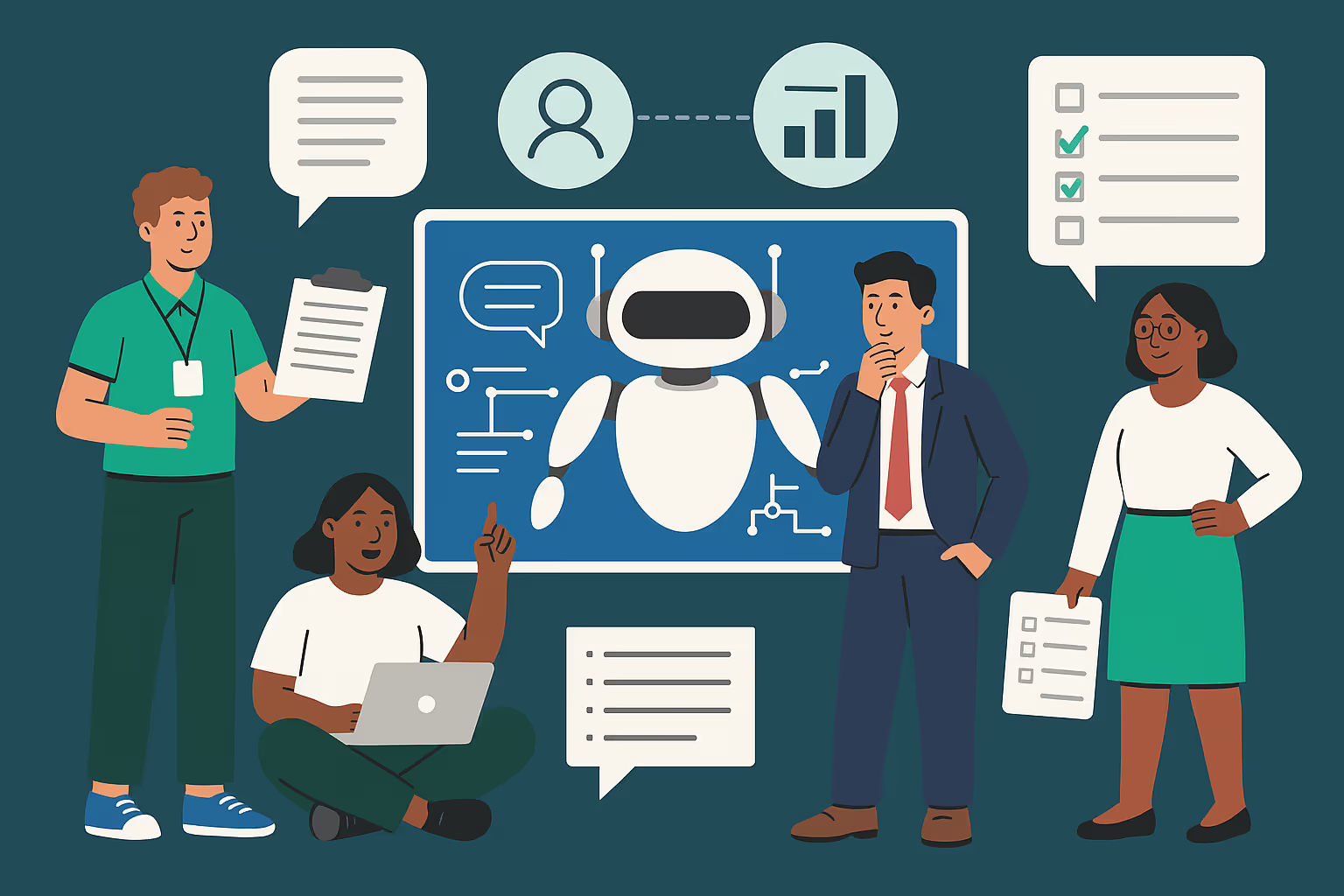
Agentic AI interviews - where autonomous AI “agents” conduct conversations to gather information - are changing how businesses interact with people and data.
These autonomous agents can act independently, make decisions, and adapt to changing situations with minimal human oversight.
In recruiting, for example, AI-driven interviews have already gone mainstream - 58% of companies use AI for video interview analysis during hiring.
But the power of agentic AI-enabled interviews doesn’t stop at hiring. Enterprises are now applying this technology in unexpected ways.
Click here to learn more about AI Agents.
Market Research – AI Interviews for Deeper Consumer Insights
Market researchers traditionally rely on surveys, focus groups, and human interviews to understand customers.
Autonomous agents offer a fresh approach – AI-driven interviews that engage consumers in natural conversations. Instead of filling out static questionnaires, respondents chat with an AI moderator that asks questions, probes for details, and adapts based on responses - much like a human interviewer, but available 24/7 and at massive scale.
This approach is gaining traction. Nearly 47% of researchers worldwide now use AI regularly in their market research activities. Yet fully automated AI interviewing is still in its infancy (currently only ~5% usage among qualitative research methods), so companies adopting it now can leap ahead of the curve. As shown time and again, early adopters will reap the most benefits.
Unprecedented scale and speed
AI interview agent can hold hundreds of conversations simultaneously, reaching far more participants than a human team. This means faster insights and the ability to hear from a large, diverse sample of customers across geographies.
Richer, adaptive conversations
Unlike static forms, an AI agent can ask personalized follow-up questions to dig into interesting answers. This dynamic probing captures nuances and emotions that traditional surveys might miss. Researchers get deeper qualitative insights, not just superficial checkbox data.
Higher engagement, less survey fatigue
Chatting with an AI-powered agent can feel more like a friendly conversation than an interrogation. Early evidence shows it pays off – conversational surveys have boosted response rates by about 27% on average by making the experience more engaging. Participants are more willing to open up when the format is interactive and tailored to them.
Automated analysis
Modern autonomous AI agents don’t just conduct interviews - the agents can transcribe and analyze them in real time. Natural-language processing algorithms pick out key themes, sentiment trends, and common pain points from hundreds of transcripts within minutes.
This saves researchers countless hours that would otherwise be spent coding open-ended responses, allowing teams to act on findings faster.
AI interview agents enable market research that is faster, scalable, and deeply insightful
An autonomous interview agent never gets tired or biased, so every participant gets a thorough, unbiased interview.
For enterprises seeking to truly listen to their customers, that capability is a game-changer.
Looking to conduct thousands of interviews in hours, not months? Analyze trends, extract key insights, and make data-driven decisions at scale with SpectraResearch! Let’s connect.
Subscribe to The InterspectAI Blog


%201.svg)








